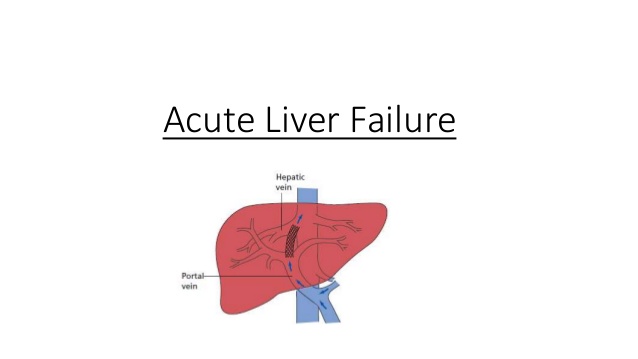Acute liver failure occurs when your liver rapidly loses its ability to function. Acute liver failure (ALF) is a serious condition requiring intensive monitoring and urgent specialist care and if not managed properly, it’s almost always fatal. We have established a dedicated ALF service for rapid response, stabilization and supervised the transportation of these patients to our centre. Our “Liver team” is geared to provide the required medical, intensive and if indicated surgical care (liver transplant) for these patients with a high success rate. Patients with acute liver failure are treated in liver intensive care unit (Liver ICU).

ALF is a medical emergency and requires prompt medical evaluation and treatment. Patients with ALF often require admission to liver intensive care unit and are probably best managed at the center that performs liver transplantation, which can be life-saving for such patients.
Treatment includes:
- For low blood pressure: Fluids are given intravenously and drugs to maintain blood pressure (MAP >70)
- For hepatic encephalopathy: Oral lactulose (a laxative) and lactulose enemas,
- If intracranial pressure is raised: Hypertonic Saline, Mannitol and other neuroprotective strategies.
- For infections: Antibiotics or antifungal drugs
- For low blood sugar: Glucose given intravenously.
- For bleeding: Transfusions of fresh frozen plasma (the fluid part of the blood, which contains proteins that help blood clot, called blood clotting factors) and, when necessary, Packed Cell Volumes (PCV).
- For breathing difficulty: mechanical ventilation
What are the signs and symptoms of Acute Liver Failure ( ALF)?
The initial symptoms of liver failure can be due to many conditions. Because of this, liver failure may be initially difficult to diagnose. Early symptoms include:
- Nausea
- Loss of appetite
- Fatigue
- Diarrhea
However, as liver failure progresses, the symptoms become more serious, requiring urgent care. These symptoms include:
- Jaundice
- Bleeding easily
- Swollen abdomen
- Sleepiness
- Coma
Diagnosis of Acute Liver Failure includes:
- Blood tests.Blood tests are done to determine how well your liver works. A prothrombin time test measures how long it takes your blood to clot. With acute liver failure, blood doesn’t clot as quickly as it should.
- Imaging tests.The doctor may recommend an ultrasound exam to look at your liver. Such testing may show liver damage and help your doctor determine the cause of your liver problems. Your doctor may also recommend an abdominal computerized tomography (CT) scanning or magnetic resonance imaging (MRI) to look at your liver and blood vessels. These tests can look for certain causes of acute liver failure, such as Budd-Chiari syndrome or tumors. They may be used if your doctor suspects a problem and ultrasound testing is negative.
- Examination of liver tissue.Your doctor may recommend removing a small piece of liver tissue (liver biopsy). Doing so may help your doctor understand why your liver is failing. Since people with acute liver failure are at risk of bleeding during the biopsy, the doctor may perform a transjugular liver biopsy. In this procedure a thin tube (catheter) is inserted on right side of patient’s neck which passes into a neck vein, through your heart and into a vein exiting your liver. Your doctor then inserts a needle through the catheter and retrieves a sample of liver tissue.


